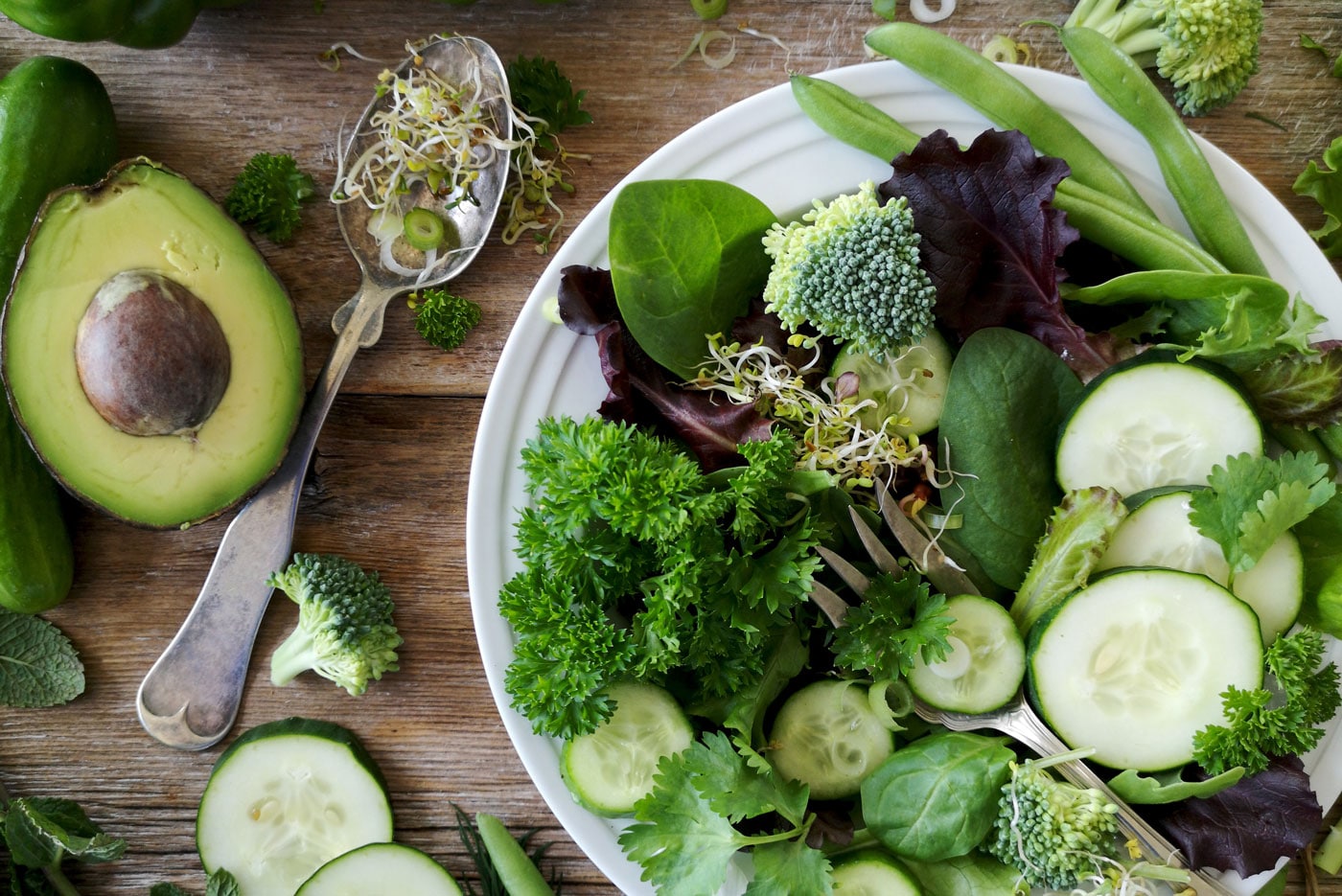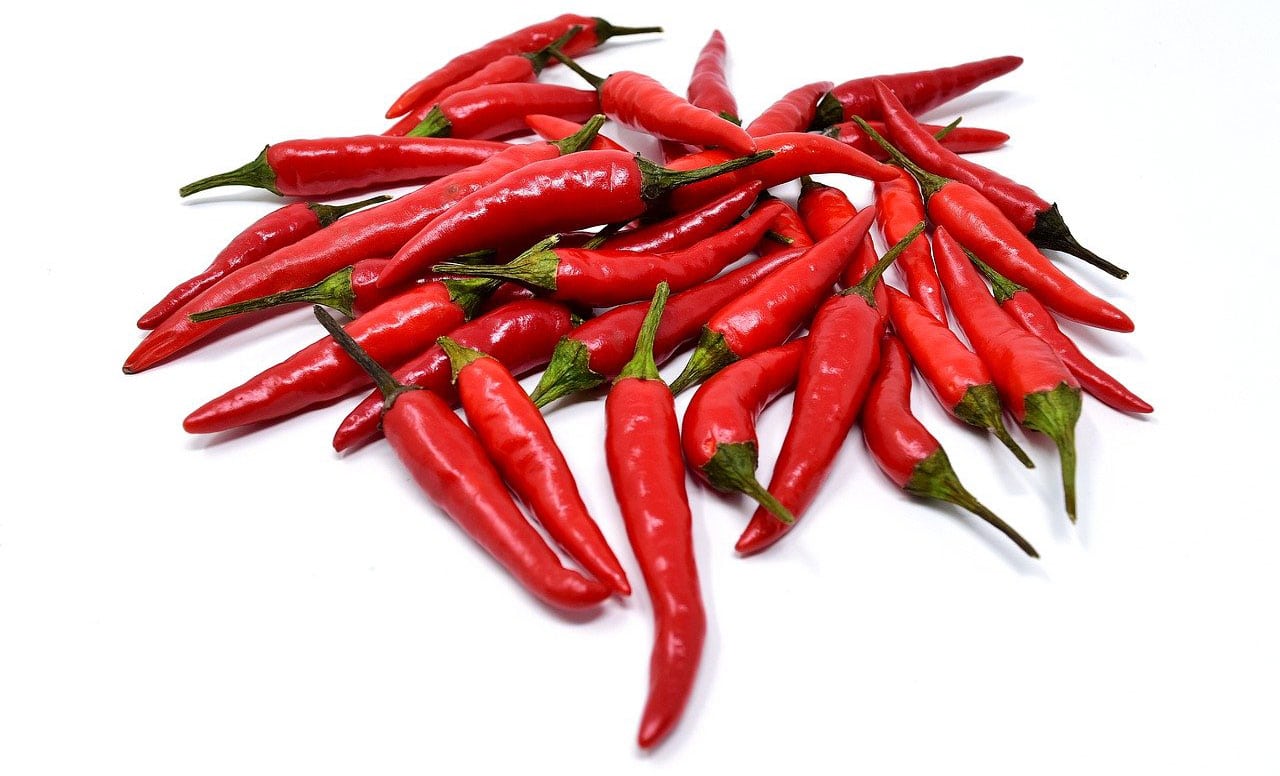
Learn how to balance your diet to improve health
Over in the West, we assess food based on its nutritional value and structure, taking into account how much protein, fat and calories it contains. However, in Chinese medicine, food is considered based on its energetic properties and how these affect the body. Foods are classed as either heating, cooling, drying or damp. Balancing these energetic properties is key for health, helping to prevent illness and disease. Today we’ll be exploring the energy of foods in Chinese Medicine. Discover which foods heat and cool the body and foods that create dryness and dampness. Learn why it’s important to balance the energetic qualities of food and which foods you should and shouldn’t eat.
Warming and cooling foods
Some foods and drinks create heat in the body, whereas others have a cooling effect.
Warming foods and drinks include:
- Onion, garlic, ginger and pepper
- Pungent spices like chilli, cayenne, coriander, cumin and turmeric
- Tomatoes
- Mangoes and oranges
- Coffee and energy drinks
- Oily foods
- Red meat
Cooling foods and drinks include:
- Sweet fruits like banana, watermelon and strawberries
- Raw foods (including uncooked vegetables)
- Leafy vegetables such as lettuce and kale
- Cold drinks, iced water and peppermint tea
- Bitter herbs like mustard greens, chicory and dandelion leaves


Drying and damp foods
Some foods cause the body to become damp (phlegmy, sluggish, swollen) or dry (where it’s lacking moisture).
Drying foods and drinks include:
- Crunchy foods like biscuits, crisps, crackers, carrots and celery
- Nuts and seeds
- Starchy grains including bread, pasta, rice, potatoes and couscous
- Beans, lentils and legumes
- Roasted vegetables
- Raw food
- Green tea and cinnamon
Damp foods and drinks include:
- Dairy
- Gluten and wheat-containing foods (bread, pasta, pastries)
- Sweet or high-water content fruits and vegetables like watermelon, pineapple and cucumber
- Sugar and sweeteners
- Eggs and meat
- Soy products
- Slimy foods such as okra and linseeds
- Too many mushrooms
- Cold drinks


Signs of too much heat
When there is too much heat in the body, it displays as redness, burning sensations, inflammation, acidity, loose stools and ‘fiery’ emotions like irritability and anger.
Conditions associated with excess heat:
- Cystitis
- Sinusitis
- Autoimmune conditions such as rheumatoid arthritis and coeliac disease
- High blood pressure
- Migraines
- Acid reflux, gastritis, ulcers and inflammatory bowel disease
- Acne, inflammatory skin diseases and infected wounds
- Stress and anger management problems
How to balance excess heat:
- Reduce hot foods and drinks, pungent spices such as chilli and dry ginger, red meat and oily foods.
- Eliminate chemical food additives, coffee and alcohol.
- Eat more salads, raw food, green smoothies, bitter vegetables and herbs.
- Do regular fasting and detoxfication to reduce excess heat.
Signs of too much cold
Excess coldmanifests as a pale complexion, feeling cold and weak, muscle spasms, feeling unmotivated and emotionally withdrawn.
Conditions connected to excess cold are:
- Poor circulation (cold hands and feet, Raynaud’s disease)
- Weak digestion (low appetite, IBS, period cramps)
- Low thyroid function (feeling sluggish, weight gain, tiredness)
- Poor memory and concentration
- Exhaustion and depression
How to balance excess cold:
- Reduce refrigerated and frozen foods including ice cream and ice lollies,iced drinks, raw and leafy foods such as chicory and kale.
- Avoid fasting and detoxification.
- Eat more warming foods like soups, curries and cooked vegetables. Add spicy herbs to food including ginger, garlic, black pepper and cinnamon to increase circulation and digestion.
- Only drink warm drinks like herbal teas and water at room-temperature.
- Vigorous exercise, saunas and oil massages can also balance excess cold.
Signs of too much dryness
When the body is too dry, weight loss can occur, skin and mucous membranes become dry, gas, bloating and feelings of fear and anxiety are normal.
Conditions linked to excess dryness include:
- Osteoarthritis (stiff, rubbing and clicking joints)
- Dry, flaking, itchy skin conditions
- Wrinkled skin
- Dry mouth, sinuses and throat and a dry cough
- Gas, bloating, IBS with constipation
- Gall stones and kidney stones
- Tremors and anxiety disorders
- Insomnia (waking in the early hours)
How to balance excess dryness:
- Reduce dry and crunchy foods such as biscuits, starchy grains and legumes.
- Avoid green tea and cinnamon.
- Drink more fluids, especially filtered water.
- Eat foods that are lightly cooked or steamed, sweet fruits, root vegetables, nut milks and slimy foods like okra, chia and linseeds.
Signs of too much damp
When the body is too damp, it’s expressed as weight gain, fluid accumulation, watery discharges and mucous, lethargy, lumps and cysts, nausea and feelings of over-sentimentality.
Conditions related to excess damp are:
- Obesity
- Fluid retention and swelling
- Benign tumours and cysts
- Candida
- PCOS
- Hay fever, allergies and wet coughs
- Excess sweating
- Fungal diseases such as ringworm and athlete’s foot
How to balance excess damp:
- Reduce dairy, sweet or high-water content fruits and vegetables such as cucumber and melon.
- Avoid sugar, gluten and refined carbohydrates (pizza, pasta, bread, pastries).
- Eat drier and crunchier food including celery, asparagus and pumpkin, whole grains, onion, ginger, garlic and aromatic spices. Avoid greasy foods.
- Limit alcohol and drink green tea.
- Add warming and drying spices to food such as cinnamon.
Balance is key for health
In Chinese Medicine, the key to optimum health is to eat foods that balance the energy in your body. Decrease excess heat with cooling foods, and reduce dampness with drying foods. Achieving balance is the best way to prevent disease and mental disharmony.





